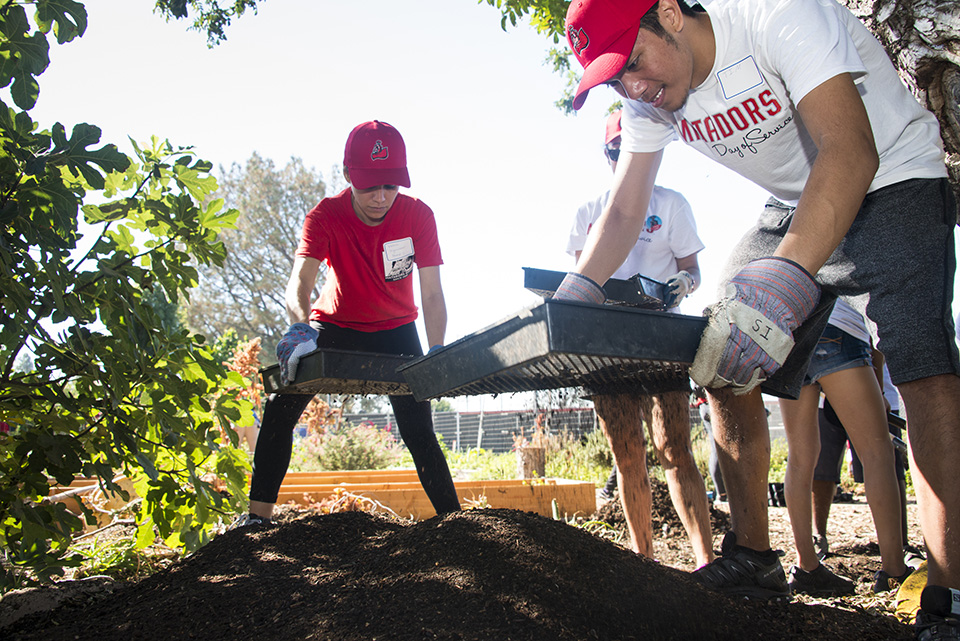
CSUN’s Institute for Sustainability is getting some help from the California Climate Action Corps in its ongoing efforts to combat the effects of climate change.
The corps, a statewide government service program dedicated to encouraging individuals and communities to take action against climate change, has assigned eight fellows to CSUN to help the campus tackle a variety of sustainability initiatives, from fighting food waste and food insecurity to creating avenues for students to take concrete steps to combat global warming. This year, the number of fellows assigned to CSUN doubled from the previous year. Inspired by the corps’ work, including that at CSUN, President Biden recently expanded the program to a national level with the creation of the American Climate Action Corps.
Fellow Valeria Ramirez ’22 (M.A., Sociology) is working on zero-waste initiatives on campus, projects to divert waste from landfills, as part of the program. She is debunking myths surrounding waste disposal, training people how to properly sort their waste and connecting zero-waste goals to every aspect of campus life, from classrooms and on-campus dining to composting.
“The Climate Action Corps program means collective action. It’s an opportunity to get involved with the community, here at CSUN and with local partners,” said Ramirez. “It’s really important that we be intentional with what we do, try to get out there and join the movement instead of just being a bystander.”
The work CSUN and the Climate Action Corps are doing encourages Matadors to get more involved with sustainability initiatives on campus, she said.
The university and Climate Action Corps are natural partners, according to Sarah Johnson, lead sustainability specialist at CSUN’s Institute for Sustainability.
“If you read their mission statement and look at ours here at CSUN, it aligns perfectly,” Johnson said.
During the 2022-23 academic year, CSUN hosted four of California’s 110 fellows, who collectively donated more than 1,600 pounds of food and engaged more than 230 volunteers in their efforts. This year’s fellows are working with the Institute for Sustainability, as well as the Office of Community Engagement and the Office of Basic Needs, to run the university’s compost collection, grow food for the CSUN Food Pantry and community, reduce food waste on campus, strengthen relationships with community partners and educate the campus about proper waste disposal.
“If we don’t learn how to manage our current resources, we don’t know what we’re leaving our future generations, so we need to set them up for success,” Ramirez said. “We need to not only think about how it impacts us in the present, but how it will impact us in the future.”



Comments are closed.